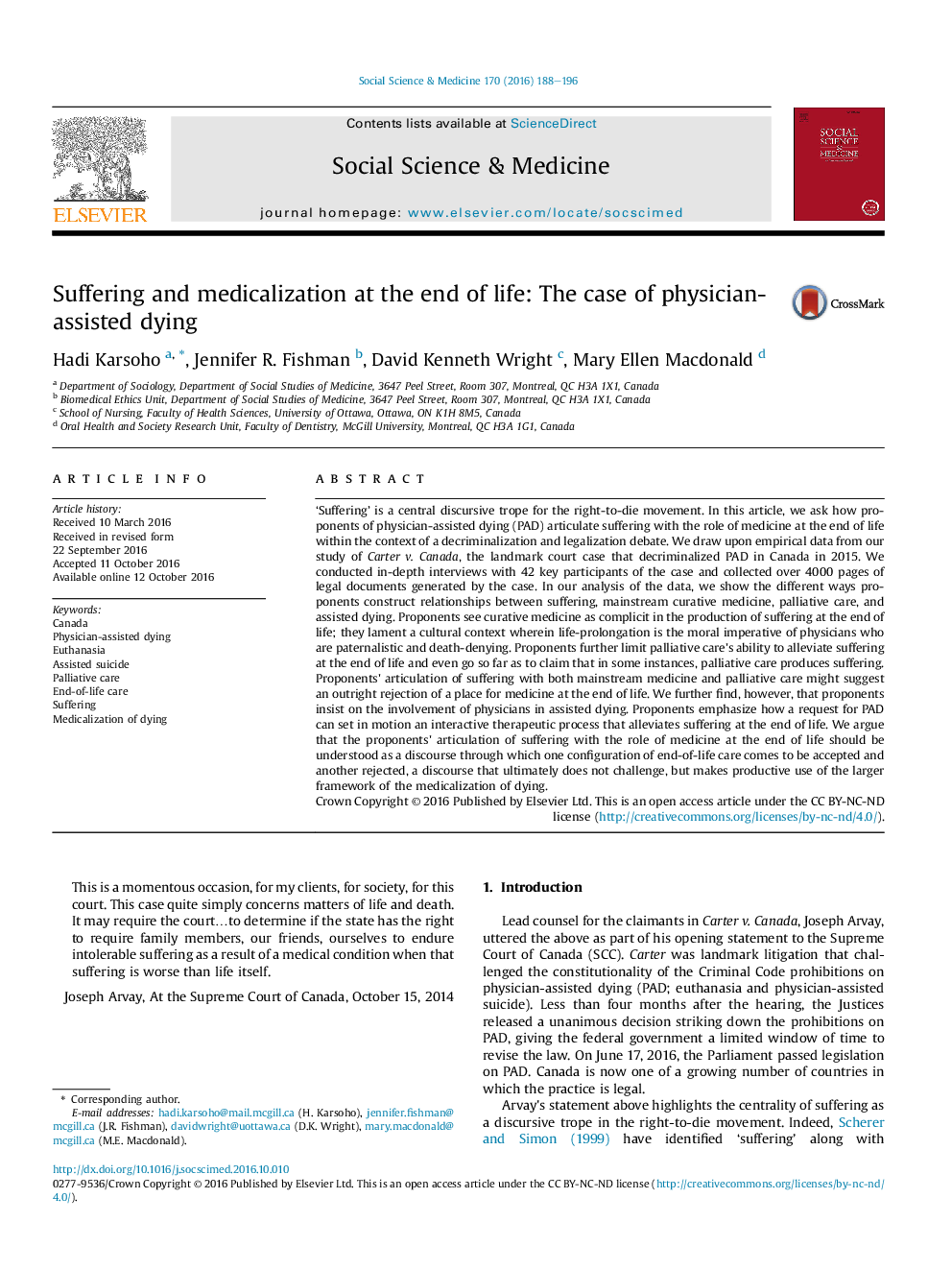| Article ID | Journal | Published Year | Pages | File Type |
|---|---|---|---|---|
| 5046868 | Social Science & Medicine | 2016 | 9 Pages |
â¢Proponents of physician-assisted dying (PAD) articulate 'suffering' with the role of medicine.â¢Draws upon data from study of Carter v. Canada, which decriminalized PAD in Canada.â¢Proponents' discourse rejects one but accepts another end-of-life care configuration.â¢Proponents make productive use of the medicalization of death and dying.
'Suffering' is a central discursive trope for the right-to-die movement. In this article, we ask how proponents of physician-assisted dying (PAD) articulate suffering with the role of medicine at the end of life within the context of a decriminalization and legalization debate. We draw upon empirical data from our study of Carter v. Canada, the landmark court case that decriminalized PAD in Canada in 2015. We conducted in-depth interviews with 42 key participants of the case and collected over 4000 pages of legal documents generated by the case. In our analysis of the data, we show the different ways proponents construct relationships between suffering, mainstream curative medicine, palliative care, and assisted dying. Proponents see curative medicine as complicit in the production of suffering at the end of life; they lament a cultural context wherein life-prolongation is the moral imperative of physicians who are paternalistic and death-denying. Proponents further limit palliative care's ability to alleviate suffering at the end of life and even go so far as to claim that in some instances, palliative care produces suffering. Proponents' articulation of suffering with both mainstream medicine and palliative care might suggest an outright rejection of a place for medicine at the end of life. We further find, however, that proponents insist on the involvement of physicians in assisted dying. Proponents emphasize how a request for PAD can set in motion an interactive therapeutic process that alleviates suffering at the end of life. We argue that the proponents' articulation of suffering with the role of medicine at the end of life should be understood as a discourse through which one configuration of end-of-life care comes to be accepted and another rejected, a discourse that ultimately does not challenge, but makes productive use of the larger framework of the medicalization of dying.
